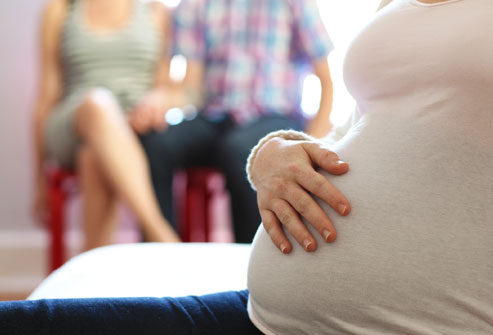
Scientists and ethicists are warning that the race to create three-parent babies represents a dangerous experiment on mothers and infants. Following news that the first three-parent baby had been born earlier this year in Mexico, a number of scientists have warned of the implications of a still-debated procedure. Dr Marcy Darnovsky from the US Centre for Genetics and Society said, “[scientists] are ignoring ongoing policy debates and conducting dangerous and socially fraught experiments on mothers and children…Use of these biologically extreme procedures for infertility is based purely on speculation.” Meanwhile, Dr Dusko Ilic, from King’s College London, said “IVF clinics are jumping on the bandwagon and rushing ahead…The major worry is how technically skilful these clinics are, what quality control measures are in place and what information they provide to desperate patients seeking help.”

Swiss media have reported that the nation has seen a dramatic increase in the number of assisted suicides, with figures for 2014 showing a 26% jump over statistics for the year before. There were 742 cases of assisted dying in Switzerland in 2014, accounting for 1.2% of all deaths there that year. In 42% of cases, assisted suicides followed illnesses caused by cancer. Neurodegenerative disorders led to 14% of assisted suicides, followed by cardiovascular illnesses at 11% and musculoskeletal maladies at 10%. However, a study of assisted suicide conducted in 2014 showed that 16% of people who died at Swiss suicide facilities had no underlying illness.

Childcare measures in Budget 2017 will only serve to widen the gap between dual income families and families with a single income or lone parent at home, the Stay-At-Home-Parents Association has said. Reacting to the announcement that day-centre centres are to be more heavily State-subsidised – the newly formed Association said the measure “is clearly discriminatory against those who care for their children at home and will take the choice out of the hands of many parents”. Catherine Walsh, spokesperson for the body said “The poorest families are becoming unable to care for their own children at home as a direct result of government policy. This policy has been clearly focused on incentivising two parents to work outside of the home in a full time capacity thus making the stay at home parent an endangered species.”

The Parliamentary Assembly of the Council of Europe (PACE) has rejected a proposal to introduce surrogacy in all member states. A vote on the issue had been called on foot of a report from Belgian Senator Petra De Sutter, which was largely in favour of surrogacy. However, it failed to pass the PACE vote. Opponents had pointed out a conflict of interest on Senator De Sutter’s part, given her links to surrogacy clinics in India. Welcoming the vote, the legal lobby group Alliance Defending Freedom said: “International law protects the right to family life, which means children are entitled to know their parents. Most cases of surrogacy render this impossible. The Council of Europe and the European Court of Human Rights consider themselves to be champions of human rights. If they are serious about the rights of women and children, they will not stop until they have achieved a complete ban on this problematic practice.”


The Irish public remains split over the form of law that should come into effect should the constitutional 8th Amendment protection for the unborn be set aside. According to an IrishTimes/Ipsos MRBI poll, which asked whether the amendment should remain or on what terms it should be replaced, men and women are evenly split on the issue, with slightly more women than men favouring retaining the ban on abortion. Overall, the poll found that while repeal of the amendment could happen on the basis of a limited abortion regime replacing it, if that limited regime were to be opposed by a mix of those for retention of the Eighth and those seeking abortion on demand, any referendum on the matter might not pass. A citizens’ assembly to consider the Eighth Amendment will meet for the first time later this month.

A new study of the US law which prohibits federal funding of abortion has estimated that it has saved some two million lives since enacted in 1976. The study, undertaken by the Charlotte Lozier Institute, compared figures since the introduction of the Hyde Amendment in 1976 against the period from 1973 to 1977 – when the US government funded terminations – and came up with the two million difference. The Hyde Amendment, which must be renewed annually by Congress – remains a constant target for pro-abortion activists despite repeated studies showing that a majority of Americans do not want their taxes used to pay for terminations. The Hyde Amendment saves more than 60,000 lives in the United States annually.

